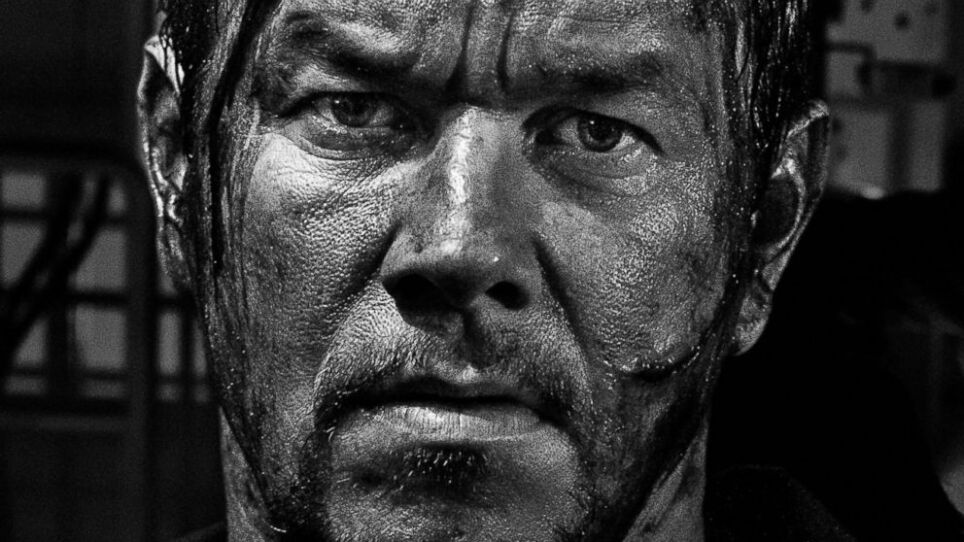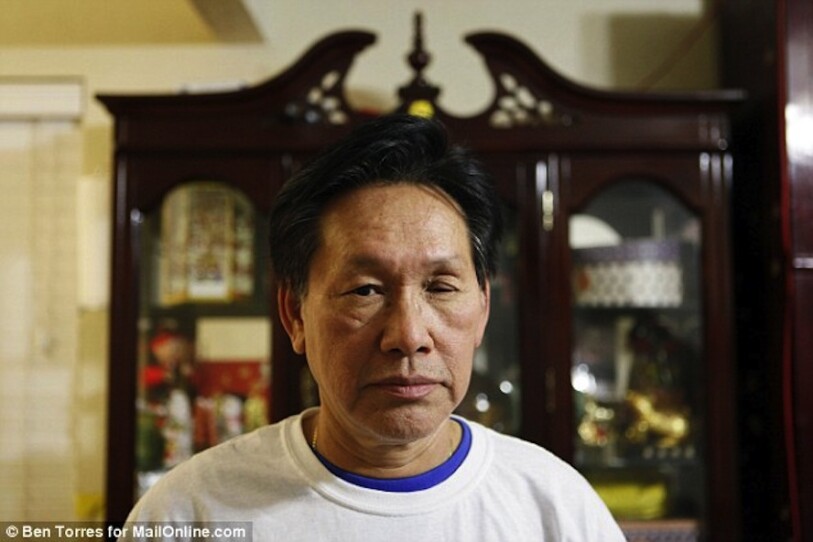The movie "Patriot's Day" will be released to general audiences nationwide on Jan. 13. It details the immediate aftermath of the 2013 Boston Marathon bombings where police Sgt. Tommy Saunders played by Mark Wahlberg is in a frantic race against the clock to hunt down the Tsarnaev brothers.
Mark Wahlberg’s on-screen portrayal of a Boston cop is filled with irony given the crimes he committed as a young man, including several assaults on people of color. The A-list actor was, until recently, trying to win a pardon from convictions from when he was a kid. Both he and the victims of his crimes are dealing with the lingering impact. Mark Wahlberg’s criminal record resulted from attacks when he was 16 on two Vietnamese immigrants during an attempted robbery in Dorchester. Both former Gov. Deval Patrick and current governor Charlie Baker were disinclined to act on his request for a pardon, so last September Wahlberg dropped his request. Gov. Baker, in a recent interview, still appeared unsympathetic to the notion of a pardon despite Wahlberg’s work on "Patriot’s Day."
"I give Peter Berg (the director) and Wahlberg and the rest of them a lot of credit for what I believe capturing the story in the right way," said Baker.
When asked if he would consider pardoning Wahlberg at this point, the governor responded, "I think he withdrew his application." When asked if he would consider the pardon had Wahlberg not withdrawn his application, the governor said, with a laugh, "I don’t speak in hypotheticals about pardons. Never!"
Though the pardon is no longer an issue, Mark Wahlberg remains self-conscious about his past and said during a recent press conference for "Patriot’s Day" that he is trying to make up for it through charitable work with the Boys and Girls Clubs and through his own life example.
"Considering where I came from and coming up in an area like this is not an easy thing to do, but that’s why I want to focus so much on giving back and make sure I can create opportunity for kids growing up in Dorchester, Roxbury...inner city average youth and tell them that if I can accomplish what I set out to do through hard work and dedication, they can do the same," Wahlberg said.

Wahlberg grew up in a tough white working class part of Dorchester. Physical attacks on immigrants and African-Americans were not uncommon in the 1980s in the post-school busing era. One of Wahlberg’s victims, Kristyn Atwood of Decatur, Ga., a black woman who was around ten at the time, told the Associated Press that she will never forgive him.
"I don't really care who he is. It doesn't make him any exception," she said. "If you're a racist, you're always going to be a racist."
Another victim, Johnny Trinh (Hoa Trinh), a Vietnamese man now living in Texas, told a reporter he does forgive Wahlberg.

Another indirect victim who endured racist taunts during that era has suggested a novel way that Wahlberg might make amends. Nam Pham, a leader in Dorchester’s 8,000-strong Vietnamese community, now works for the Baker administration.
“He’s a big movie star. We all believe in [a] second chance," he said in a 2016 interview. "Perhaps he can make a movie talking about race.”
Pham gave the following pitch:
“A man from Dorchester who was a troublemaker and now trying to make things better for everybody. A movie that would embrace the concept of brotherhood, of living together, making our neighborhood a much better place, I think that would be a wonderful thing to do.”
Walhlberg, in hearing about this proposal from WGBH News, said, "Well I'll have to figure out who’s going to play me in the movie first. That would be the toughest task."
Wahlberg actually seemed open to Nam Pham’s suggestion of making a movie about race and reconciliation centered on himself.
"Yeah, growing up in Boston during the 70s and 80s there was a huge racial divide. It was pretty much all we knew growing up and one of the things I continue to go back to is to see how far cities come, how much people have grown and how people from all walks of life. And as far as telling my own story, these are things that I’ve worked hard every day to become a better person, a better father, a better husband and a better Bostonian. So, the last act of my story is yet to be written but I am very proud to be a Bostonian, to be a part of this story," Wahlberg added.
Hollywood has never made a full-length movie about the collective trauma of racism and busing that enveloped Boston in the 1970s and 80s. In the meantime, Mark Walhberg hopes that "Patriot’s Day" will serve as one kind of movie about reconciliation.
"How people from all walks of life ran towards the problem and went to help people because it was the right thing to do," he said.
Check out Mark Wahlberg and Peter Berg on WGBH's "Open Studio" with Jared Bowen.





